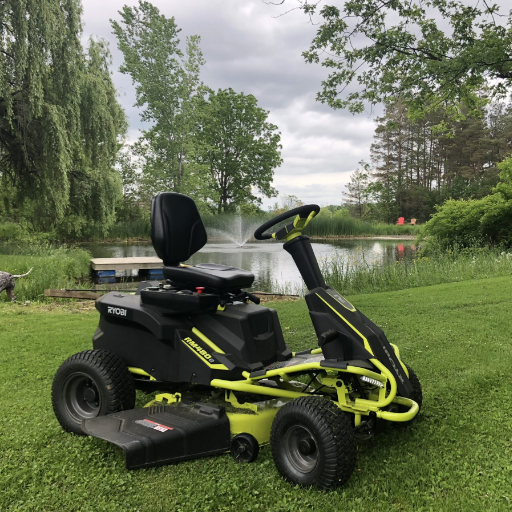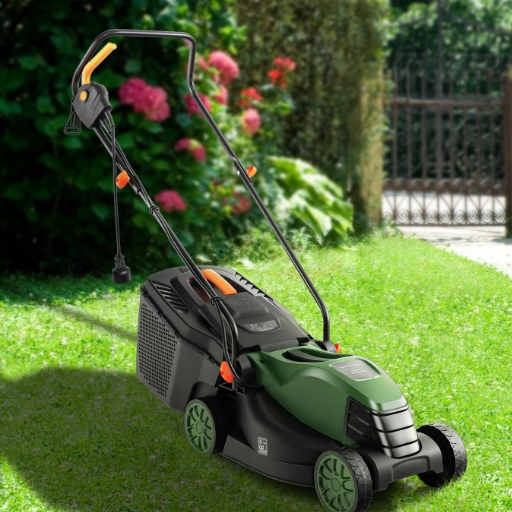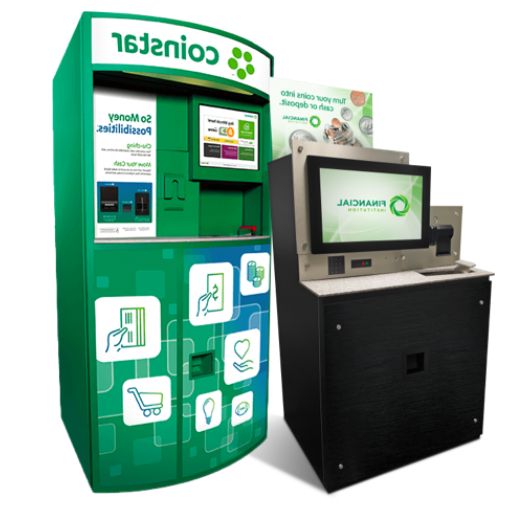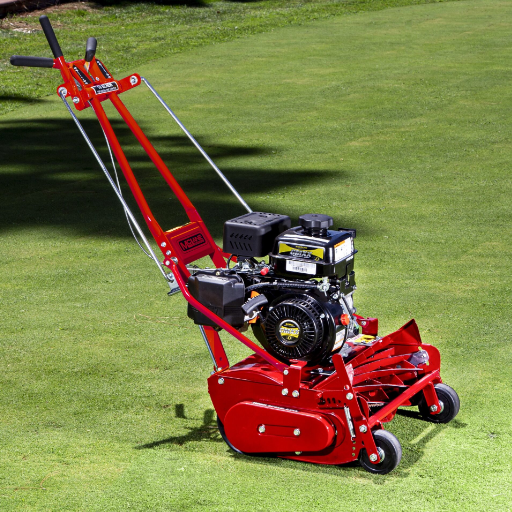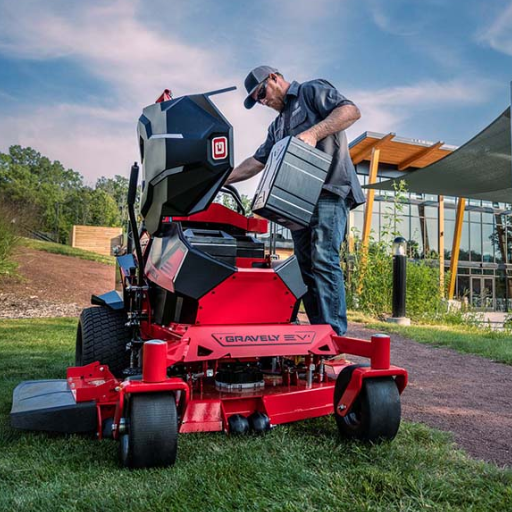Do you have a jar filled with loose coins at home? And are you wondering how to convert that spare change into usable cash without the hassle of counting and rolling it? Here comes the Coinstar machines. These convenient kiosks, located in grocery stores and retailers across the country, make it easy to exchange your coins for cash, eGift cards, or charitable donations. Whether you want to declutter or make some money from it, this article gives you all the detailed information about Coinstar machines and how they can change your coin collection into something more usable. Continue reading to discover the best ways to utilize this smart time saver!
Introduction to Coinstar Machines
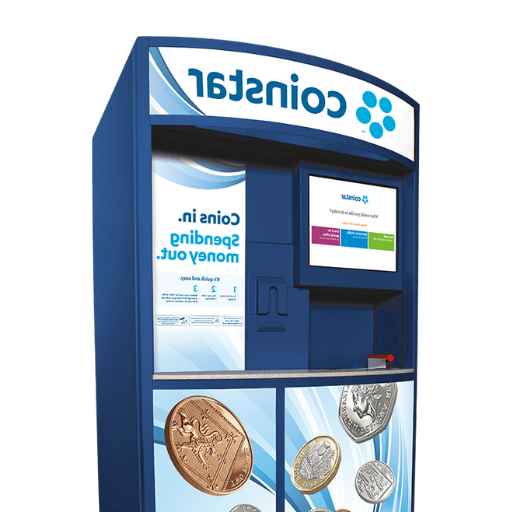
Coinstar machines are self-serve kiosks enabling customers to turn loose coinage into cash or eGift cards, or donate to charity. They are the most common varieties of Coinstar spots in grocery and retail stores, providing the convenience of handling change. One uses a Coinstar by doing little more than pouring coins in a tray, following the on-screen instructions, and choosing a payout preference. While Coinstar charges a service fee on cash payments, opting for eGift cards or donations will waive this fee. Such a service is a fine way to quickly exchange and manage coins without having to count or sort on your own.
What is a Coinstar Machine?
One can find Coinstar machines in grocery stores and various retail locations, offering a self-service kiosk facility that quickly converts loose change into cash, eGift cards, or donations to charity.
Purpose of Coinstar Machines
The primary benefit of Coinstar machines is to provide people with an easy and quick way to convert their loose change into cash, eGift cards, or make charitable donations. Reported data suggest that these machines save a significant amount of time and effort compared to manual coin counting, presenting an alternative for individuals who accumulate spare change. Coinstar processes billions of coins annually, with a network of over 60,000 kiosks worldwide, a sheer number that denotes its popularity and usage. The ability to donate directly from the machine gives a further offshoot from these machines for social good. With the automation of counting and the inclusion of touchscreens that allow even ordinary people to operate them efficiently, Coinstar machines have proven to be popular and user-friendly for all coin management needs.
How Coinstar Machines Work
The Coinstar machine is designed to operate on a simple and efficient mechanism that combines cutting-edge technology with user convenience. When coins are poured into the machine, they are led into an automated counting mechanism. Inside the machine, special sensors identify, sort, and count the coins. They use weight and size together for accurate identification and rejection of foreign or damaged coins. Afterwards, redemption options are offered to the user. One can obtain a cash voucher redeemable in the store where the kiosk is installed. The other option earns customers digital gift cards for major retailers, such as Amazon, Starbucks, and Home Depot, at a discounted or no fee. Another growing aspect of this service is the direct donation option to charitable organizations, which solidifies Coinstar’s commitment to driving positive change in the world.
The latest statistics indicate that Coinstar has approximately 60,000 kiosks worldwide, processing roughly 43 billion coins annually. There is usually a fee levied by the machines, ranging from about 11.9% for cash payouts, with some applications slightly varying by location or service option. Internal systems are now equipped with features such as touchscreen interfaces, intuitive user interfaces, and sophisticated anti-fraud features, making Coinstar machines more enjoyable for coin handling and exchange. In just a couple of minutes, the process is complete, making it a time-saving venture for users while handling coin overload.
History of Coinstar
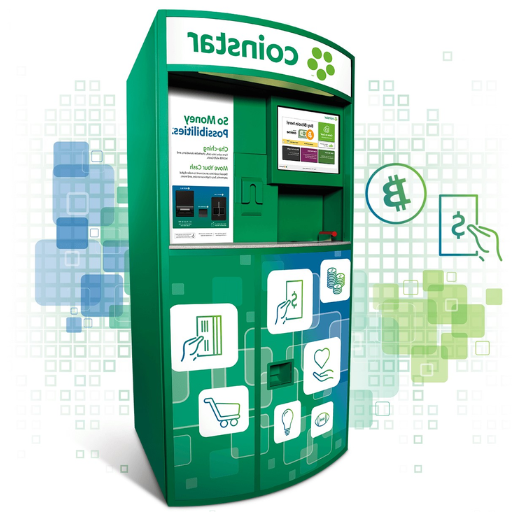
Coinstar was founded in Bellevue, Washington, in 1991 by Jens Molbak. The conceptualization came to Molbak upon seeing the trouble people went through with their loose change. The first Coinstar machines were installed in supermarkets to provide users with a convenient way to convert their coins into cash. Over the years, Coinstar expanded its operations and services to become a household name in the coin-counting industry. Now, the company has thousands of Coinstar machines worldwide and continues to develop its offerings to meet modern needs.
Founding and Development of Coinstar
Coinstar was founded by Jens Molbak in 1991 to solve the problem people faced with loose change. The genius idea of Molbak was to create a simple method of coin conversion, so he set about designing self-service machines that would accept coins and return cash vouchers. The very first Coinstar machines were installed in supermarkets, making an easy and accessible solution for consumers.
In the coming decades, Coinstar experienced periods of growth, further expanding its machine installations not only throughout the United States but also in multiple international markets. By 2023, Coinstar will maintain over 20,000 kiosks worldwide, located in countries such as the United States, Canada, the United Kingdom, Germany, and others. The kiosks are located in supermarkets, retail stores, and high-traffic areas to maintain high accessibility.
Coinstar yet again innovates with new services being incorporated into its kiosks. Beyond coin counting, its machines now perform exchanges for gift cards, purchases for cryptocurrency, and donations to charities. Until recently, Coinstar partnered with Coinme, allowing customers to buy Bitcoin directly from its kiosks, driven by the growing interest in cryptocurrencies.
Coinstar stations derive revenue through transaction fees, which typically range from 10.9% up to 12.5% of the total coins being counted, varying by region and services offered. According to sources, Coinstar processes billions of coins each year that would otherwise be useless, making them useful after processing, thereby providing considerable convenience to customers. Continuous innovation and a thorough responsiveness to customer needs have enabled Coinstar to be considered a front-runner in the self-service financial technology sector.
Evolution of Coinstar Kiosks
|
Key Point |
Details |
|---|---|
|
Founded |
1991 by Jens Molbak |
|
First Kiosk Installation |
1992 in San Francisco supermarkets |
|
Initial Purpose |
Convert loose change into cash |
|
Early Technology |
ATM-style software, coin sorting, and online network |
|
IPO |
1997 on NASDAQ |
|
International Expansion |
Entered Canada and UK markets in late 1990s |
|
Rebranding |
Renamed to Outerwall in 2013 |
|
Acquisition |
Acquired by Apollo Global Management in 2016 |
|
Modern Services |
Added eGift cards, charity donations, and cryptocurrency options |
|
Global Reach |
Over 60,000 kiosks in North America, Europe, and other regions |
|
Processing Volume |
$2.7 billion in coins annually (as of 2019) |
|
Fee Structure |
12.5% in the US, varies by region |
|
Charity Contributions |
Raised over $20 million for charities by 2006 |
|
Cryptocurrency Integration |
Enabled Bitcoin purchases via Coinme in 2021 |
Impact on Coin Conversion Services
The company has revolutionized the field of coin conversion services by transforming the way consumers handle loose change. Below are five noteworthy points and data highlighting the company’s impact:
- Accessibility: With more than 20,000 kiosks worldwide, Coinstar makes coin conversion easy and accessible to millions of users.
- Efficiency: At a rate of over 600 coins per minute, the average Coinstar kiosk allows conversion of coin collections into cash or gift cards in just a few minutes.
- Customer Options: Coinstar exchange options include cash payouts, eGift cards to various popular retailers, and direct donations to charity organizations.
- Worldwide: The company operates its business in the United States, Canada, the United Kingdom, Ireland, and Germany, allowing diverse communities to retain a portion of their unused coinage.
- Environmental Impact: Coinstar helps save costs and the environment by recycling billions of coins every year, bringing them back into active circulation through the recycling process.
Benefits of Using Coinstar
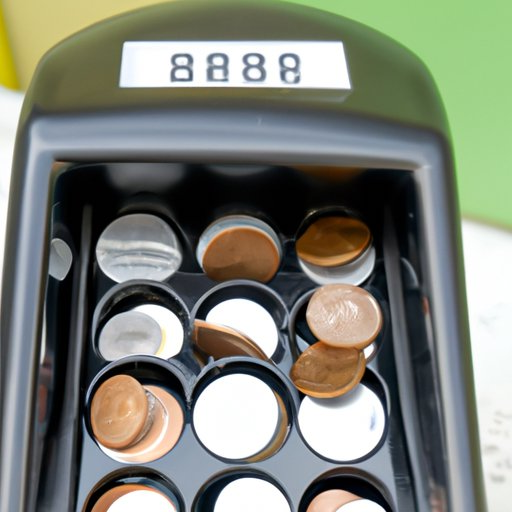
|
Key Point |
Details |
|---|---|
|
Convenience |
Easily convert coins to cash or gift cards |
|
Wide Availability |
Over 60,000 kiosks globally |
|
Charity Donations |
Donate coins directly to supported charities |
|
No Sorting Required |
No need to roll or sort coins manually |
|
Gift Card Options |
Exchange coins for eGift cards without fees |
|
Cryptocurrency Access |
Buy Bitcoin through Coinme-enabled kiosks |
|
Time-Saving |
Quick and automated coin counting process |
|
Accessible Locations |
Found in grocery stores, banks, and retailers |
|
Supports Digital Payments |
Offers e-payment and prepaid card services |
|
User-Friendly Design |
Simple interface for all users |
Convenience and Accessibility
Coinstar kiosks are located in select areas near various retailers, including grocery stores, drugstores, and supermarkets, to provide accessibility to a wide range of people. Without requiring a deposit or account setup at a bank, the mechanism is relatively straightforward: you simply pour your coins inside, and it counts and sorts them. According to one report, more than 90% of Americans live within five miles of a Coinstar kiosk, which denotes the widely accessible nature of the service.
The kiosks provide vouchers that can be redeemed for cash, along with eGift cards for the most prominent retailers, such as Amazon, Starbucks, Target, and many more, or allow for a direct charity donation. With its easy-to-use layout and multilingual option, Coinstar has made it feasible for underrepresented users to utilize this service effectively. So, advanced counting technology, the convenience of nearby locations, and multiple redemption options combine to make Coinstar the preferred way to turn coins into spending or philanthropic opportunities.
Time-Saving Advantages
Time savings constitute one of the significant benefits of using Coinstar. While coin rollers could be doing it themselves for hours, these machines can complete the counting and processing of coins within minutes. It is said that search results indicate that persons can find their way through 600 coins in under a minute at a Coinstar kiosk, building the price, which is very much so, perfectly opposite the average hours using the conventional method.
Knowing that there are nearly 20,000 locations worldwide, people can easily find a kiosk near them without wasting valuable time searching or traveling long distances. Time is further saved because the kiosk allows them to generate instant eGift cards and even donate money to charity, thereby eliminating the need for time-consuming trips to the bank or other manual organizational tasks that require loose change. This extra time translates directly to more time for a busy person or family to spend on anything much more important than rolling coins.
Additional Services Offered by Coinstar
Providing Coinstar with various services to address different financial and gifting requirements. Below are the five essential services offered by Coinstar:
- Coin-to-Cash Service:
Turning those coins into cash is never a simple thing. All that a customer has to do is dump in coins into a Coinstar kiosk, and out comes folded bills, minus a service fee.
- eGift Cards Exchange:
Mix coins for eGift cards from your favorite stores, such as Amazon, Starbucks, and Nike. There is no furor over fees concerning this; hence, the coin holder can turn their entire value into an eGift card.
- Free Charity Donations:
Donating coins to charitable organizations is made possible through Coinstar while ensuring no fees are attached, meaning that every penny of your donation goes to the cause you chose.
- Bank Coin Counting:
Partnering with select financial institutions, Coinstar enables patrons of certain banks to deposit loose change directly into their accounts, making the banking experience more convenient.
- Buy Bitcoin:
Offering a simple way to buy Bitcoin at Coinstar kiosks in partnership with Coinme. Customers convert cash into Bitcoin vouchers that are redeemed online—the perfect way to get started with cryptocurrency.
Costs and Fees Involved
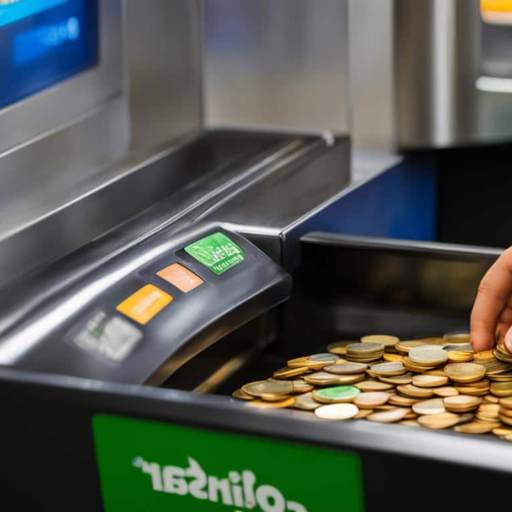
There are specific fees applied for using Coinstar machine services. For cashing in coins, Coinstar charges a service fee of up to 12.5% of the amount being converted, although this fee may vary by location. There are, however, no fees incurred if one opts for an eGift card or makes a donation to charity. The fee structure for buying Bitcoin from Coinstar kiosks is a 4% transaction fee plus a 7% cash exchange fee. It is always wise to ensure the fees you are expected to pay are current by checking either the kiosk or the Coinstar website beforehand.
Standard Fees for Coin Conversion
If cash is desired, Coinstar typically charges its customers a service fee of up to 12.5%. Different locations, however, may observe differences in the percentage. No fee is applicable for conversions that fall under the options given, which include eGift cards or charitable donations.
Understanding the Pricing Structure
Coinstar’s service pricing is relatively straightforward, yet it varies from one location to another and also depends on the type of transaction chosen. When you want your coins converted into cash, Coinstar will charge a service fee of up to 12.5% on the total amount, plus a $0.50 processing fee. For instance, when converting $100 from coin money, the customer might pay $12.50 in fees to receive approximately $87.50 in cash.
Coinstar users can avoid the service fee by opting to use eGift cards. A reasonable number of major retailers, including Amazon, Starbucks, and Walmart, offer such cards. Since the service fee is not charged for this kind of transaction, you can redeem your coins for the full value of gift cards.
Other options include donating coins to charity organizations through Coinstar’s services. This method of transaction also incurs no fees, making it highly recommended when one wishes to donate to a good cause.
Pricing and services may vary by location and kiosk model. Therefore, it is essential to review the terms at the Coinstar kiosk nearest you or refer to the official Coinstar website for current prices.
Comparing Costs with Other Methods
|
Method |
Cost/Fees |
Key Details |
|---|---|---|
|
Coinstar (Cash Option) |
11.9%-12.9% + $0.59 fee |
Convenient but high fees for cash conversion |
|
Coinstar (Gift Cards) |
No fees |
eGift cards for select retailers, no extra cost |
|
Coinstar (Charity) |
No fees |
Donate coins directly to charity, tax-deductible |
|
Banks (Account Holders) |
Free or minimal fees |
Requires pre-rolled coins in most cases |
|
Banks (Non-Customers) |
Small percentage fee |
Fees vary by bank and location |
|
Credit Unions |
Free for members |
Often includes coin-counting machines |
|
Retail Stores |
Varies, typically small percentage |
Coin-counting machines in select locations |
|
DIY Coin Wrapping |
Free |
Requires time to sort and roll coins manually |
|
Online Services |
Fees vary, often percentage-based |
Mail-in or app-based coin counting |
|
Community Exchanges |
Low or no fees |
Local initiatives supporting small businesses |
Tips for Maximizing Your Use of Coinstar

- Sort Your Coins – Separate the foreign coins, damaged coins, and other non-coin items. Otherwise, they may cause problems in processing.
- Choose the Best Option: Opt for a gift card or a donation to avoid the fees associated with cash payouts.
- Look for Promotions – Sometimes, there are special offers for certain gift cards available at Coinstar. Take advantage of these if possible.
- Locate a Kiosk Near You – Use Coinstar’s website or app to find a kiosk that is close by and conveniently located.
- Get Ready – It’s best to recheck the terms and options so the kiosk fits your needs before heading down.
Preparing Your Coins for Conversion
Preparation is essential for those seeking to maximize their Coinstar experience. Follow this process to make your Coinstar procedure quicker and more efficient:
- Sort Your Coins – First, sort your coins to avoid inadvertently including foreign currency, tokens, or dirt. Coinstar machines process only standard U.S. currency: pennies, nickels, dimes, and quarters. They may reject other things. Per recent comments, slow machine response times have sometimes been attributed to improperly sorted coins.
- Remove Excess Dirt from the Coins – Sticky and dirty coins may cause trouble for the kiosks. Coinstar machines are designed with typical wear and tear in mind, but very heavy dirt or residue may cause an error. A quick rinse and drying of the coins before turning them in might just make all the difference.
- Count or Estimate Your Total – Knowing in advance what to expect will help you plan your entire transaction more effectively. For comparison, a gallon-sized jar of mixed coins typically contains between $400 and $500, depending on the denominations. Yet, keep in mind that a quick count of your own or using a home coin sorter will give you more accurate numbers.
- Use Smaller Containers While Carrying Your Coins – Try to avoid fetching your coins in giant jars or buckets. Use small bags or boxes instead. This is easier to handle at the kiosk yourself and will reduce the chances of spilling or dropping the coins.
- Check Accepted Coins and Fees – From the latest online information available on Coinstar machines, the typical fee charged to convert coins to cash is 12.5% plus $0.50 for processing. Gift cards and donation options, on the other hand, are free. Double-check that your coins are compatible with the machine, especially if you are dealing with older or rare currency.
By satisfying these key pointers, you can make your Coinstar kiosk experience smooth and hassle-free, ensuring that your accumulated coins pay off.
Timing Your Visit for the Best Value
One of the best things one can do is time their trip to the Coinstar kiosk.
Tips To Help You Time Your Visit:
- Early in the Day:
Afternoon to evening hours usually coincide with peak hours; mornings should be less crowded and offer a calmer experience.
- Avoid Weekends:
Weekends are the times when most people are out doing errands, including going to a Coinstar machine. Try to plan your visit during the week to avoid wait time and possible crowding.
- Identify Peak Hours:
Coinstar’s kiosks are typically located in grocery stores, and lunchtime as well as after-work hours are considered peak hours there. Hence, try visiting off-peak in the mid-morning or mid-afternoon.
- Check Coinstar Promotions:
Coinstar may occasionally offer a promotion for a limited time, available for select gift card choices or fee reductions. Check the deals so you can use them during your visit.
- Maintenance Times:
Coinstar undergoes scheduled maintenance that may temporarily halt a kiosk’s operation. If you catch a coin jam or error on display, it might be better to return later, after maintenance has been completed.
Keeping the above factors in mind will help ease your Coinstar experience and increase productivity.
Understanding Promotions and Offers
In my definition of promotions and offers, I usually regard discounts offered by Coinstar, such as reduced fees or special bonuses on certain gift cards. By monitoring these promotions, either online or through in-store announcements, I ensure that I capitalize on these great deals to get the maximum value for my coin exchange.
References
-
California State University ScholarWorks: This source discusses Coinstar’s expansion and its role in processing coin currency. Link to source
-
University of Washington Tacoma Digital Commons: This presentation explores Outerwall, the parent company of Coinstar, and its ventures like ecoATM. Link to source
-
Northern Illinois University Huskie Commons: This paper examines direct marketing and distribution strategies, including Coinstar’s subsidiary, Redbox. Link to source
Frequently Asked Questions (FAQ)
What are Coinstar Kiosks?
Coinstar kiosks are self-service machines that allow users to convert loose change into cash or gift cards. They are commonly found in supermarkets and retail locations, providing a convenient way for customers to turn their coins into usable currency without visiting a bank.
How Do Coinstar Machines Count Coins?
Coinstar machines can count a variety of coins, including pennies, nickels, dimes, and quarters. Users simply deposit their coins into the machine, which then sorts and counts them. Once the coins have been counted, customers can choose to receive cash or a voucher for a gift card.
What Fees Does Coinstar Charge?
Coinstar charges a service fee for processing transactions, typically as a percentage of the total value of coins being exchanged. This fee can vary based on the method of redemption, such as cash or e-gift cards. It’s worth noting that some promotions may offer fee-free exchanges.
Can I Donate My Coins at Coinstar?
Yes, Coinstar also offers users the option to donate their coins to charity. Customers can choose a charitable organization at the kiosk, and a portion of their coins will be converted into a donation, helping those in need while eliminating spare change.
Where Can I Find Coinstar Machines?
Coinstar machines are widely available in retail locations, including supermarkets and big-box stores. To find a kiosk near you, visit the Coinstar website and use their store locator feature, which will direct you to the nearest machine.
What Types of Gift Cards Does Coinstar Offer?
Coinstar offers a variety of gift cards from popular retailers, including Amazon and other leading brands. After counting the coins, customers can opt to receive a gift card instead of cash, which is a great way to use their change for shopping or gifting.
How Does Coinstar Handle Different Coin Denominations?
Coinstar machines are built to accept and process all standard coin denominations, including cents, nickels, dimes, and quarters. Users can simply toss their change into the machine, and it will sort and count each type of coin, making the transaction efficient and user-friendly.
What Should I Know About Using Coinstar Machines?
When using a Coinstar machine, it’s essential to be aware that a processing fee is applied to each transaction. Customers should also ensure that their coins are free from debris and not wrapped, as the machine can only accept loose change. After the coins have been counted, users will receive a receipt detailing the transaction.



